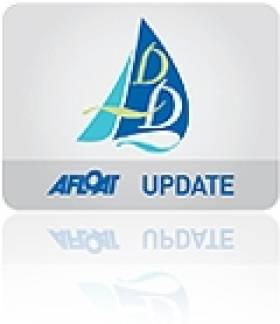Displaying items by tag: Brian Farrell
Dun Laoghaire to Dingle Race 2011 is Launched
The possibility of an Open 40 entry plus a new white sail division are just some of the developments for the tenth Dingle Skellig Hotel Dun Laoghaire to Dingle Race. Over 50 (SCROLL DOWN FOR PHOTOS BY MICHAEL CHESTER) gathered at the National YC in Dun Laoghaire last night to hear local TD and the Minister for Sport, Tourism and Culture Mary Hanafin give a ringing endorsement for the unique 320-mile offshore race when it sets sail on June 11th. A notice of race and entry form is available for download below.
The last race attracted 39 entries and a course record was set by Michael Cotter's Whisper. This year organisers Martin Crotty and Brian Barry along with Dingle Harbour master Brian Farrell are confident that they will break the 40 boat barrier. They may well be right as the event has been specifically timed to bring Dublin boats to the south coast for ten days of racing at the ICRA Nationals in Cork Harbour and the Sovereigns Cup the following week in Kinsale.
The event is also benefitting from inclusion in this year's ISORA calendar.
Present last night were represntatives from the major Bay clubs, including Breda Dillon from Howth YC and Fintan Cains of ICRA. Peter Ryan of ISORA, who is also the National YC commodore spoke about plans to develop off shore sailing and the club's plans to welcome the international Figaro offshore fleet in August.
Solo sailor Mick Lidddy who is making a bid for an Irish entry into the race was also in attendance.
SCROLL DOWN FOR LAUNCH PHOTOS BY MICHAEL CHESTER
Afloat coverage of the 2009 Race is HERE





























































